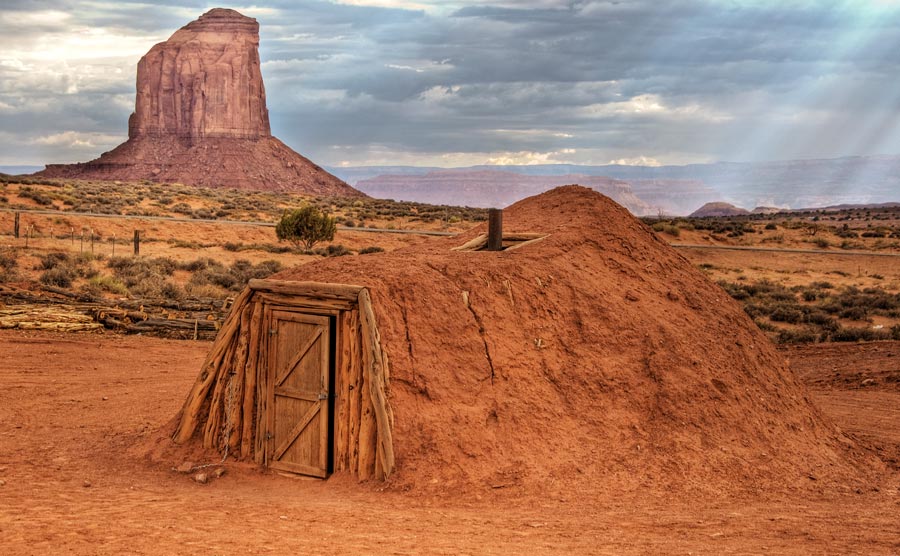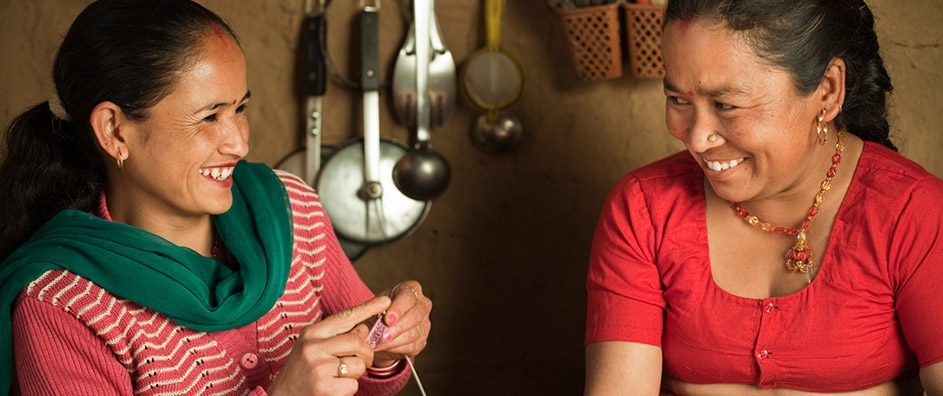The views expressed in our content reflect individual perspectives and do not represent the authoritative views of the Baha'i Faith.
One of my oldest friends has a standard response when anyone asks him that old question “Hey, what’s going on?”
“The rent,” he always says. Some people don’t get it, but most nod sagely and say something like “You got that right.”
He does, too. Most people’s chief material concern, and chief expense, comes from providing shelter for themselves and their families. Many of us pay our rent to the landlord or our mortgage payment to the banker, knowing it’s our biggest bill by far. Globally, that holds true in most places. Experts estimate that, depending on where you live, an average of between 30-75% of all household income goes to pay for the house. We work and slave, mostly, for the roof over our heads.
A few years ago my wife and I lived in the Bay Area in Northern California, one of the most expensive real estate markets in the United States, if not the world. We definitely didn’t live in the fancy high-rent district, but our home, in a nice part of a middle-class town in what’s called the East Bay, wasn’t cheap, either. I worked nearby, so we didn’t have much choice about where to live, unless I wanted to endure a punishing, spirit-crushing multi-hour commute in a high-traffic region.
So one day I decided to sit down and do the math. It shocked me when I came to the sobering realization that I literally worked for my 90-year-old house—well, to be more accurate, I worked for the bank’s 90-year-old house. The overwhelming majority of our income, my wife and I now knew, went toward the mortgage, the taxes, the insurance, the upkeep, the maintenance, the utilities—oh, and the plumber, who we now knew on a first-name basis. Yikes, I thought—what’s wrong with this picture?
All that math reminded me about a very content and happy man I met the last time I went to the Navajo reservation in Arizona. For many years he lived in a traditional Navajo hogan he inherited from his ancestors. A Navajo hogan is a wonderful, simple single-room structure, usually made of log and mud construction, built to be cool in the summer and warm in the winter. Architects and environmental scientists have studied the hogan and called it the first energy-efficient home.

But my Navajo friend needed something a little larger than his hogan, because he now had children and grandchildren who liked to visit. So he found an old mobile home that had seen better days, bought it for a few hundred dollars, and towed it to his property. He had no electricity or plumbing there, but he heated and lit the mobile home with propane, and he gradually fixed its various problems, making it into a clean, comfortable and welcoming place for him and his family. No rent, no mortgage and no property taxes—no wonder he’s such a happy man, I thought.
What an incredible contrast, right? All of it made me wonder whether I had my priorities straight; and made me think about our modern housing conundrum. I looked at the statistics, and found out that worldwide, about one in four people live in conditions that harm their health, safety, prosperity and opportunities. I also learned that by 2030, the UN and Habitat for Humanity both estimate that an additional 3 billion people—about 40 percent of the world’s population—will need access to housing. That translates into a demand for 96,150 new affordable units every day and 4,000 every hour. In other words, we have a very long way to go in a very short time—but it can be done. Some places find ways to house the homeless with “tiny house villages,” some in public housing, some in permanent supportive housing units—we certainly have the ability and the technology, if we can find the compassion.
So I began to search the Baha’i writings, asking what they have to say about the ways we house ourselves—or don’t—and what the future might hold in terms of the universal human need for shelter:
Among the results of the manifestation of spiritual forces will be that the human world will adapt itself to a new social form, the justice of God will become manifest throughout human affairs, and human equality will be universally established. The poor will receive a great bestowal, and the rich attain eternal happiness. For although at the present time the rich enjoy the greatest luxury and comfort, they are nevertheless deprived of eternal happiness; for eternal happiness is contingent upon giving, and the poor are everywhere in the state of abject need. Through the manifestation of God’s great equity the poor of the world will be rewarded and assisted fully, and there will be a readjustment in the economic conditions of mankind so that in the future there will not be the abnormally rich nor the abject poor. The rich will enjoy the privilege of this new economic condition as well as the poor, for owing to certain provisions and restrictions they will not be able to accumulate so much as to be burdened by its management, while the poor will be relieved from the stress of want and misery. The rich will enjoy his palace, and the poor will have his comfortable cottage.
The essence of the matter is that divine justice will become manifest in human conditions and affairs, and all mankind will find comfort and enjoyment in life. It is not meant that all will be equal, for inequality in degree and capacity is a property of nature. Necessarily there will be rich people and also those who will be in want of their livelihood, but in the aggregate community there will be equalization and readjustment of values and interests. In the future there will be no very rich nor extremely poor. There will be an equilibrium of interests, and a condition will be established which will make both rich and poor comfortable and content. – Abdu’l-Baha, The Promulgation of Universal Peace, p. 131.
“The rich will enjoy his palace, and the poor will have his comfortable cottage,” Abdu’l-Baha said. Here, he advocates a “readjustment of the social economy” to accomplish that goal:
Baha’u’llah set forth principles of guidance and teaching for economic readjustment. Regulations were revealed by Him which ensure the welfare of the commonwealth. As the rich man enjoys his life surrounded by ease and luxuries, so the poor man must, likewise, have a home and be provided with sustenance and comforts commensurate with his needs. This readjustment of the social economy is of the greatest importance inasmuch as it ensures the stability of the world of humanity; and until it is effected, happiness and prosperity are impossible. – Ibid., p. 181.
In the next essay in this series, we’ll explore that possibility, and see what it might take for the world to reach the profound level of equity, justice and fairness such a pronouncement predicts.
Next: Policy Plus Philanthropy—the Sole Solution to Income Inequality
















Comments
Sign in or create an account
Continue with Googleor